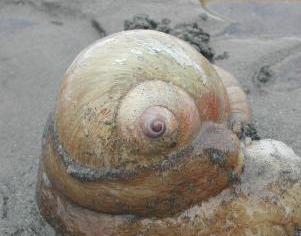It's almost ironic that, finding myself pregnant with cancer, I'm drawing strength from what I've learned as a fledgling birth activist. A staunch VBAC advocate, fighting for the chance at a 26-week cesarean? A family-unplanner, researching sterilization surgery? It's not easy to apply my old convictions to my new situation. But it's helping.
Tonight I'm thinking about gratitude. Survivors of birth trauma are haunted by the reprimand that they "should be grateful," because "all that matters is a healthy baby." Reading You Should Be Grateful, the groundbreaking essay by Gretchen Humphries, was the starting point for my healing after my son's delivery -- during those first months when I worried that I wasn't "grateful" enough for my healthy child to forget the pain of a lost birth.
And here I am, at another starting point. The first day that my doctor called with a cancer diagnosis, I found myself huddled under the covers in bed, bargaining with God. And I heard myself say it -- "Lord, I will give up everything -- all that matters is a healthy baby." But I knew this wasn't true. I knew might be forced to judge -- brutally so -- exactly how much value I placed on this child's life. But I also knew that, however my other priorities might fall into shadow, they would still always matter. And what else could possibly matter? I've made a list:
Strength and Mobility Matter. I'm scared of the prospect of being temporarily immobile, incontinent, and disabled if I have a hysterectomy with a newborn. I'm trying to imagine this as a slow and quiet season in life, expecting little of myself and others, thinking only of healing. But I know it will be frustrating. If it hurts, I will let it hurt.
Bonding and Breastfeeding Matter. A cesarean-hysterectomy can take over five hours. Pain and recovery can be compounded many times over, compared to a cesarean alone. But the more I'm in the hospital, the more I learn not to fight pain medication, catheters, and IVs when my body still needs them for healing. This means that the first hours, or days, of my child's life might be spent without me able to feed or interact with them. I will grieve this.
Fertility Matters. By the end of the summer, I look forward to having two beautiful, healthy children to call my own. I live a life of abundance, filled with more love that any one woman deserves. Still I choke back tears when I read Hop on Pop. "Father, Mother, Sister, Brother/This one is my other brother." My children will not have "another brother." My family destiny has always been a matter of spiritual and marital trust and enterprise. It's an open horizon, closing into finition for reasons beyond my control. I will grieve this.
Youth and Sexuality Matter. About half of hysterectomy patients show signs of early menopause. Yes, I hear everyone's mother and mother-and-law have been doing really well lately with or without hormone supplements. They are inspirational to us all. I'm just not ready to be them. Whatever happens to my body, I will cope -- proudly, and with all the dignity and grace I can. But I will grieve whatever I lose of my 33-year old body.
Birth Matters. I still don't know whether a cesarean will be my safest bet in this situation. If it is, I'll deal -- but I won't like it. I will grieve my lost birth. I will feel disappointment and anger. I will write, sing and share this pain until I am healed. I will do this knowing that it cannot -- ever-- compromise the love I have for my children.
I'll probably think of other things that matter, as I go. I don't do this to be negative. I'm so, so grateful for the chance to have a healthy baby. Having thought long and hard about our lives (and deaths), I know exactly what "matters" most about me and my baby. But even if I don't lose it all, I'll still grieve what I lose. To deny this would be to lie and cheat myself. To accept this is to accept life and loss -- and to gain the strength to move through pain, to eventually find something more.
